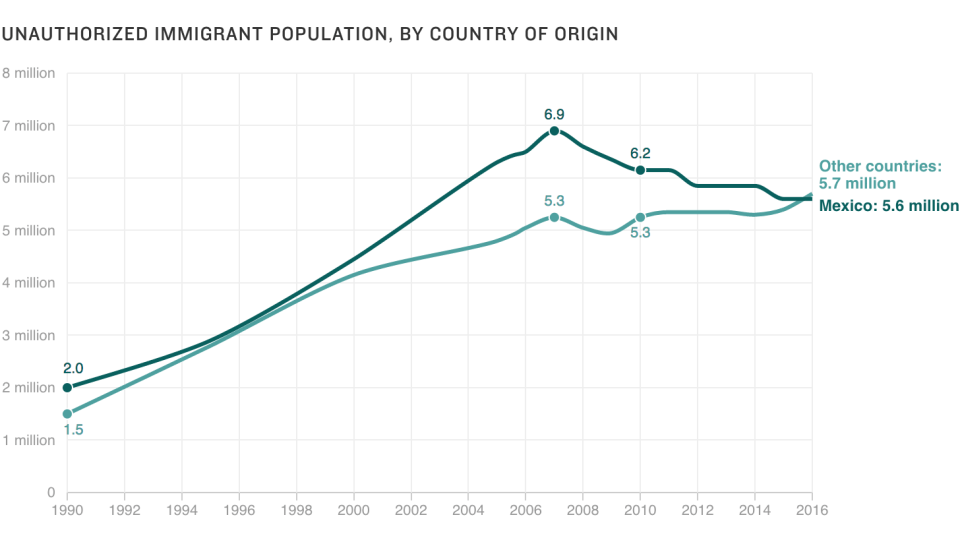For the first time in more than a decade, Mexicans no longer make up the majority of immigrants staying in the U.S. illegally, according to new estimates by the Pew Research Center.
Their analysis of U.S. Census Bureau data shows that last year, there were 5.6 million Mexican nationals living in the U.S. without authorization – half of the unauthorized immigrant population in 2016. Mexicans have been the majority of that population since 2005, according to the Pew report.
Although Mexicans still make up the largest group of unauthorized immigrants, numbers from Mexico have been on the decline since the Great Recession began in late 2007.
The number of unauthorized immigrants from other countries has been on the rise since the end of the recession, hitting an estimated 5.7 million in 2016. Immigrants from Central America and Asia – largely from India and China — are two of the main drivers of that growth.
These demographics shifts within the unauthorized immigrant population mark a transition that began after the recession, according to Jeffrey Passel, a demographer at Pew who co-wrote the report. Historically, Passel says, the number of Mexicans entering the U.S. illegally would go up when the U.S. economy was strong.
"That kind of explanation fit very well from 1990 through 2009," he adds. "Since 2009, though, the number of Mexicans has continued to fall and the unemployment situation in the U.S. has continued to improve. So it appears ... that linkage has broken."
Passel says he does not expect migration from Mexico to pick up in the years ahead given the increasing difficulty of crossing the southwest border and Mexico's shrinking youth population coupled with the country's declining birth rate.
"A lot of Mexican unauthorized migration was related to family and friendship linkages between people in Mexico and immigrants in the U.S.," he adds. But those connections may not be as strong as before since fewer immigrants have been crossing the border.
Copyright 2017 NPR. To see more, visit http://www.npr.org/.




